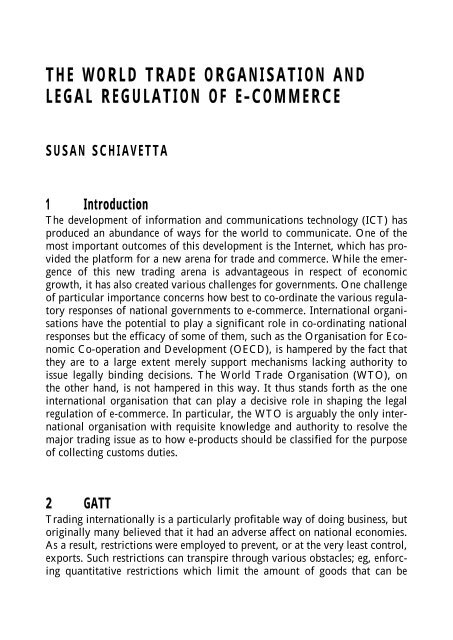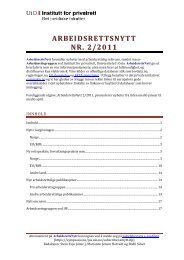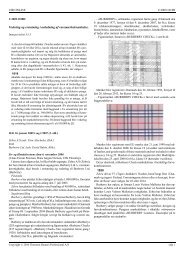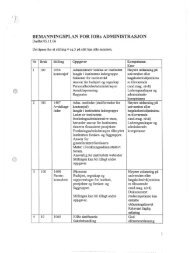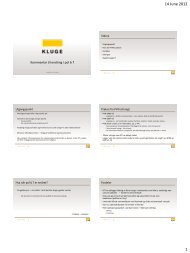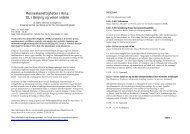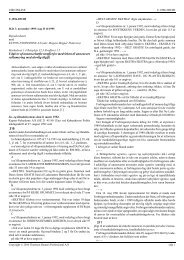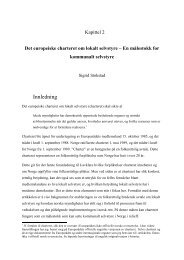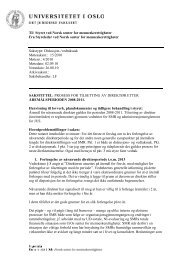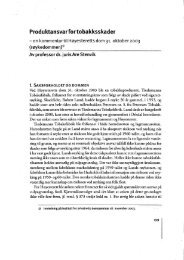Lee A. Bygrave (red.) YULEX 2002 - Universitetet i Oslo
Lee A. Bygrave (red.) YULEX 2002 - Universitetet i Oslo
Lee A. Bygrave (red.) YULEX 2002 - Universitetet i Oslo
You also want an ePaper? Increase the reach of your titles
YUMPU automatically turns print PDFs into web optimized ePapers that Google loves.
THE WORLD TRADE ORGANISATION AND<br />
LEGAL REGULATION OF E-COMMERCE<br />
SUSAN SCHIAVETTA<br />
1 Introduction<br />
The development of information and communications technology (ICT) has<br />
produced an abundance of ways for the world to communicate. One of the<br />
most important outcomes of this development is the Internet, which has provided<br />
the platform for a new arena for trade and commerce. While the emergence<br />
of this new trading arena is advantageous in respect of economic<br />
growth, it has also created various challenges for governments. One challenge<br />
of particular importance concerns how best to co-ordinate the various regulatory<br />
responses of national governments to e-commerce. International organisations<br />
have the potential to play a significant role in co-ordinating national<br />
responses but the efficacy of some of them, such as the Organisation for Economic<br />
Co-operation and Development (OECD), is hampe<strong>red</strong> by the fact that<br />
they are to a large extent merely support mechanisms lacking authority to<br />
issue legally binding decisions. The World Trade Organisation (WTO), on<br />
the other hand, is not hampe<strong>red</strong> in this way. It thus stands forth as the one<br />
international organisation that can play a decisive role in shaping the legal<br />
regulation of e-commerce. In particular, the WTO is arguably the only international<br />
organisation with requisite knowledge and authority to resolve the<br />
major trading issue as to how e-products should be classified for the purpose<br />
of collecting customs duties.<br />
2 GATT<br />
Trading internationally is a particularly profitable way of doing business, but<br />
originally many believed that it had an adverse affect on national economies.<br />
As a result, restrictions were employed to prevent, or at the very least control,<br />
exports. Such restrictions can transpire through various obstacles; eg, enforcing<br />
quantitative restrictions which limit the amount of goods that can be


